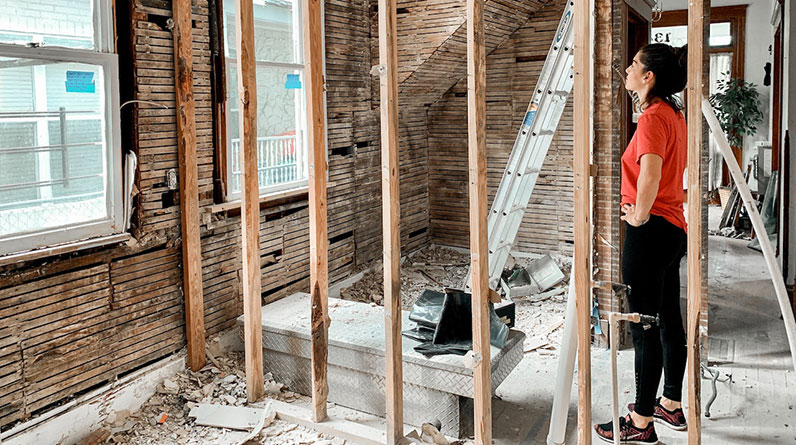
The Real Estate Market Cycle
Investors must develop the ability to understand the real estate market cycle in order to create effective investment plans and maximize returns.
The housing market is heavily affected by numerous factors, such as the general economy, demographics and interest rates. These variables may also be drastically affected by major events that take place nationally or internationally.
The Expansion Phase
When the economy is in expansion, real estate developers can start construction. At this time, GDP growth is high, job creation is strong and housing supply-demand balance exists. Furthermore, now is an excellent time to invest in property due to strong leasing momentum.
Investors can take advantage of discounted prices by purchasing distressed properties at reduced costs. Depending on the asset, they may be able to resell or refinance it during expansion for a substantial profit. This strategy, known as an opportunistic one, has become popular among real estate investors.
Investors may choose to purchase core properties with stable occupancy and a rent roll full of credit tenants during this phase. They may also opt to acquire properties that require repair or maintenance in order to reposition them for future sales during the next expansion stage.
Many investors are actively searching for property at these low prices and interest rates, hoping to find deals that will generate profits in years ahead.
In addition to low rates, the economy is improving and consumers are spending more. This presents an excellent opportunity for real estate investors due to the expanding job market and high demand for rental properties.
As the economy continues to strengthen, the Federal Reserve sets interest rates based on overall economic performance. When things are going smoothly, interest rates tend to be higher so people can afford more purchases. Conversely, when recession hits, they reduce rates so consumers still have money to spend.
Oftentimes, the economic cycle follows a wave pattern that rises and falls. These waves may be caused by various catalysts such as global crises or wars.
Real estate market fluctuations are unpredictable, and it can be difficult to pinpoint exactly why a market decline occurs. To minimize losses, it’s essential to comprehend the four phases of the cycle and learn how to navigate them successfully.
Once you understand the four phases of the real estate cycle, you can use it to help decide if an investment is worthwhile. Furthermore, being familiar with this period allows for accurate forecasting of upcoming trends and more successful investments.
As the recession begins, it may become harder to secure financing to purchase or sell a property. This could cause home values to decrease significantly – an issue for both homeowners and landlords alike.
It can also have a detrimental effect on employment and wages, which is detrimental for businesses and employees alike. Lower morale may result in decreased productivity, motivating employees to quit working at their jobs.
The Recession Phase
In a recessionary real estate cycle, supply exceeds demand and leads to high vacancy rates and negative rent growth (or rent growth below inflation). Some opportunistic investors take advantage of this situation by purchasing properties at bargain-base prices in an attempt to hold them until after the recovery period begins.
Recessions are often caused by global crises and other major events; however, they can also be initiated by smaller factors like interest rates or tighter lending restrictions.
Many real estate investors become too risk-averse or invest in markets they cannot afford to cover. This can result in significant losses for them.
When an economy enters a recession, banks loosen their lending criteria, enabling some borrowers to acquire property they otherwise wouldn’t be able to finance. This often results in an increase in the loan-to-value ratio – up to 90 percent or more in some instances.
Unfortunately, some novice real estate investors can experience significant financial loss during this period. This is particularly risky for those who have become overly leveraged ahead of a recession.
If you are considering investing in real estate during a recession, make sure you have enough cash on hand to cover expenses should the need arise. Doing this will help protect against losing money and give you a solid plan for getting through the downturn and out of the market successfully.
One way to guard against falling into the recession is by securing long-term fixed-rate financing on your properties. You may also avoid foreclosure by purchasing properties at a competitive price in a desirable area and using the proceeds for paying down your mortgage.
Some experts advise saving up a rainy day fund to guarantee you can continue investing in real estate during an economic downturn. You can do this by setting aside money from each paycheck into savings accounts or getting short or long-term loans on investment properties, which will enable you to cover expenses during any economic downturn.
The next stage in the real estate cycle is expansion. During this period, new construction increases supply of residential and commercial real estate, potentially creating a strong surge in demand for rental homes and commercial space – particularly within major metropolitan areas.
It can also be an advantageous time to fix and flip properties in high-tier markets. During a downturn, these well-located properties may sell for significantly less than their market value.
This phase presents an excellent chance to purchase foreclosures, pre-foreclosures and REO property. These are properties that banks have taken back from their owners for various reasons. During the last recession, these were some of the best buys investors made.
The Recovery Phase
The recovery phase of the real estate market cycle occurs immediately following a recession. This period sees occupancy rates improve, leasing activity picks up speed and rental rate growth begins to accelerate again. Therefore, this period presents investors with an ideal opportunity; they can purchase discounted properties in various stages of distress at great prices and reposition them for future expansion opportunities.
Though this is an excellent time for investment opportunities, the recovery phase also presents its drawbacks. Tenants often struggle with keeping up with rent payments during this period, forcing landlords to get creative with lease agreements and rental prices in order to stay profitable.
Furthermore, homeowners are facing a difficult time selling and refinancing their homes as the real estate market is still recovering from the recession. Those who purchased their homes during this period should consider selling during this recovery phase in order to benefit from lower prices and interest rates.
Real estate investors are in a prime position to take advantage of investment properties that have been discounted or foreclosed during the recession. They can either sell those assets at a profit, hold onto them until recovery begins, and then reposition them for expansion.
Opportunistic investors who act early during this phase will have a unique chance to purchase distressed assets at substantial discounts compared to replacement costs. They can then reposition those properties and resell them during the subsequent expansion phase.
Opportunistic strategies can be profitable, but they require a business plan that aims to transition the subject asset out of distress and into expansion mode. Ideally, holding periods should last two to four years.
At this stage, the economy is beginning to recover from recession and people are feeling optimistic about the future. Now is an excellent time for investors to purchase property as real estate values are low and financing options are plentiful.
At present, the real estate market has fully recovered from recession and demand for properties is high. Vacancies are low, rents are high (and rising), and new construction is commonplace.
Expansion is a popular time for real estate investors to purchase and renovate properties, as this can be an ideal period to increase rents and boost property values. Unfortunately, some investors avoid investing during this phase due to fear that finding tenants will be difficult.
Real estate cycles are long-term affairs. While they don’t always follow a linear progression, they can generally be predicted with some accuracy. Acquainting yourself with this cycle will enable you to make informed decisions when buying, selling, and repositioning properties – whether as an individual investor or part of a large real estate syndication. Knowing the cycle gives you an edge over your competition.






